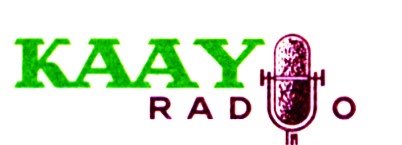There have been references in this blog to the Cuban Missile Crisis and the use of KAAY to reach Cuba with VOA broadcasts.
Richard Robinson has written two papers on the subject and I have ask his permission to use excerpts in this blog. Richard and I have been in touch over the years as he worked on the papers. I found his research and conclusions to be right on target as related to KAAY. I started at KAAY soon after the crisis was over. Tom Bishop the first manager was gone, Len Carl became General Manager. Jim Hankins a/k/a Mike McCormick was program director and probably the main player in this interesting story. I will have more details and excerpts in later posts. To get started , below is a promo that ran on KAAY during the crisis. It was voiced by Wayne Moss. a/k/a Sonny Martin. The writing is very obviously Hankins. This recording is a dub from the actual cart that was used on the air.
And here is the opening of one of Richard's papers:
"THE UNITED STATES INFORMATION AGENCY USE OF COMMERCIAL RADIO STATIONS DURING THE CUBAN MISSILE CRISIS"
By Richard C. Robinson
Arkadelphia, Arkansas
This study focuses on a little-known event that happened during the Cuban Missile Crisis in October 1962. The United States Government, through its United States Information Agency, asked ten commercial radio stations throughout the country to broadcast Voice of America programs to Cuba in Spanish. Broadcasting began with the speech by President John F. Kennedy on October 22, and continued from late-night until dawn each evening for a period of more than three weeks. Examination of previous literature revealed little on this subject.
The study was conducted utilizing a number of sources. They included the "Internet," newspaper accounts, government publications, oral history transcriptions, books and interviews. Research revealed that this was the first time in the history of the United States that the government utilized commercial broadcast media for propaganda purposes. Government used a number of methods to provide the official point of view of the United States to the people of Cuba, both prior to and during the period of crisis. Even though some publicity was generated about the effort, apparently most of the people in the United States were not aware of persuasive techniques employed by their own officials.
The findings raise a number of questions for the news media. President Kennedy was criticized for his "manipulation of the media" during this period. While Kennedy and U.S. officials praised the radio stations for their help and "patriotism," there should be concerns over how a democratic government can issue official propaganda messages through "free market" media outlets. This study could serve as a historical reference for future research about government control and media manipulation.


No comments:
Post a Comment